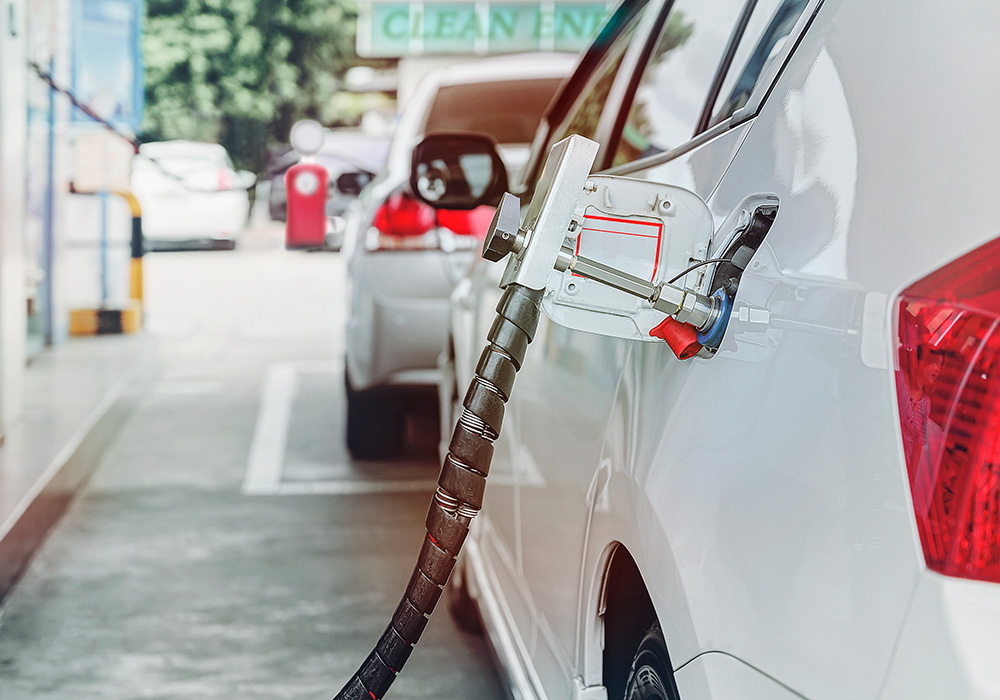
Is gas a reliable alternative to car fuel?
Natural gas is so cheap that many manufacturers are looking for more profitability from this clean fuel, there are currently about 30 million gas-powered cars in the world, and these 30 million cars use compressed natural gas (CNG) instead of liquefied natural gas (LNG). they do. Liquefied petroleum gas, on the other hand, is a strong competitor to diesel in heavy vehicles. Most of these gas-powered cars are in Central Asia, Latin America and Europe, and North America and Africa each have only about 250,000 gas-powered cars left behind.
In the past few decades, as oil prices have risen, some of Europe’s poorest regions have faced the spread of black-burning vehicles. At the time, these cars had less engine power than a time bomb, and less horsepower, despite their cost-effectiveness.
But that is no longer the case.
In 2012, with the introduction and testing of dual-fuel road vehicles, stunning progress was made in this area, and the issue of power and power of black-burning vehicles was no longer an issue, but another problem that remains is the lack of sufficient number of blackout stations.
This problem also applies to electric cars, and if they do not have enough car charging, they will not be accepted.
If people welcome burning cars, such infrastructure problems will be solved over time.
The question is why, despite the cleanliness of gas-burning cars, they cannot be replaced by gasoline and diesel cars, and one of the reasons for the low popularity of gas-powered cars is that the results of some studies show that natural gas is not clean; Last year, a private transport and environmental association (T&E) in Europe claimed in a report that heavy-duty electric vehicles generated five times more pollution than heavy-duty diesel vehicles (in terms of nitrogen oxide emissions).
Following this research, it is difficult to accept this, given the reputation that natural gas has created for itself as a clean fuel, but what the European Association and other critics of the use of liquefied petroleum gas fuel fuel are focusing on is the problem of methane leakage. .
Mehdi Tawil, an industry expert, said: “Since this research does not take into account the amount of sulfur in diesel, it cannot be relied on.
On the plus side, gas-powered vehicles (metallurgical and hydroelectric power plants) do not emit harmful methane gas. Methane leaks in the process of transferring natural gas from wells to liquefaction units and fuel stations, which makes natural gas fuel “not completely clean”.
For critics who believe that even the lowest levels of pollution are not acceptable, the use of fossil fuels is not at all acceptable, but for those who have a slightly more realistic view, the use of natural gas is a good option.
It is likely that gas will not be able to completely replace gasoline, but it could reduce demand for liquid fuels in road and sea transport sectors.
The Wall Street Journal reported earlier this month that investment in incinerators was on the rise.
Interestingly, sales of black-burning cars are also on the rise. A recent study by Market Research Inc. found that the gas-powered car market would grow at an annual combined CAGR of 7.8 percent over the next five years, reaching $ 10.39 billion by 2024. Even if this amount is not equal to global growth, it is very significant. In India alone – one of the largest car markets in the world – burning cars could account for half of the new sales price by 2030.
Thus, although gas cannot replace crude oil at least until the near future, it can account for a large share of the fuel required by the land and sea transport sector and replace crude oil in this regard.
